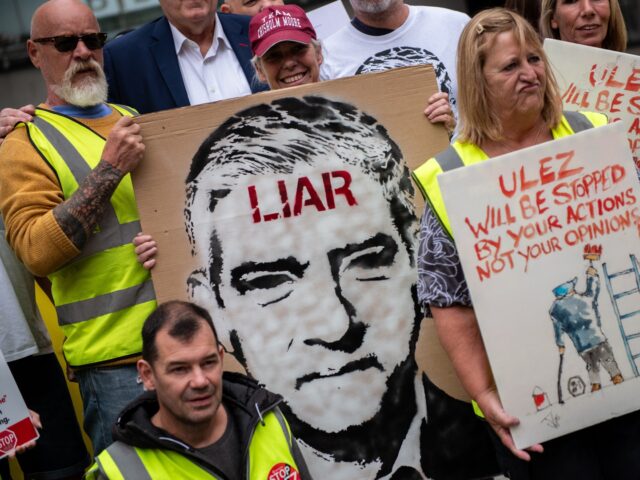London Mayor Sadiq Khan’s office has been accused of attempting to pressure scientists to back his green agenda anti-car ULEZ scheme after a study found that the tax on motorists had a minimal impact on improving air quality in the capital.
Far-left Sadiq Khan’s deputy for the environment and energy Shirley Rodrigues reportedly demanded Professor Frank Kelly, a leading scientist on the topic of air pollution, that he dispute characterisations in the media that a study produced by his colleagues at Imperial College London demonstrated that the Ultra Low Emissions Zone (ULEZ) imposed by the Khan administration in 2019 resulted “in only small improvements in air quality soon after it was implemented”.
Following reports in the media about the study, Rodrigues wrote to Kelly asking him to help the mayor’s office “set the record straight” and that she was “really disappointed” in Imperial College for publicising its findings into the ineffectiveness of the scheme, according to emails obtained by The Telegraph.
Claiming that the study could not give an accurate picture until the policy had been implemented for a longer period of time, the mayor’s aid continued: “I am deeply concerned about the damage this misleading study is doing, both to our credibility and to low emission zones as a policy instrument.”
The following day after Professor Kelly had expressed willingness to support the Greater London Authority’s position on the study, Rodrigues wrote: “I do appreciate that you don’t want to have a ‘fight’ with another part of Imperial but The Times… have also picked up (the report) and (are) repeating the mistake. Is there anything you’d be happy to put on the record now?”
In February of this year following an article published by the Daily Telegraph, Khan’s deputy once again emailed the professor, asking him to personally write to the newspaper in order to “challenge some of the misunderstandings” in the article.
Kelly is reported to have responded that Imperial College was opposed to expressing a “direct contradiction” of the study, but added that “As always, I’m happy to fight back.”
London police revealed Friday nearly 300 incidents of attacks against spy cameras used in the city’s Ultra-Low Emission Zone (ULEZ) have been recorded ahead of the contentious scheme’s wider rollout later this month. https://t.co/6A5XwsuZwi
— Breitbart News (@BreitbartNews) August 18, 2023
The revelations come as Mayor Khan is set to expand the ULEZ scheme to the entirety of London, meaning that thousands of motorists will be forced to pay between £12.50 to £27.50 per day if they drive in the city, enraging blue-collar and working-class people who need to commute by car in the city for their jobs.
While there are some exceptions for newer cars that meet emissions standards, as well as for hybrid and electric vehicles, ironically many drivers who were previously encouraged by the government to purchase diesel-powered cars — previously touted as being more environmentally friendly — will fall afoul of the policy.
The planned expansion of the ULEZ scheme has seen widespread pushback, with growing protests throughout the capital and even rogue action taken by some to dismantle or destroy the surveillance cameras used to enforce the tax. Even Khan’s own Labour Party under Sir Keir Starmer has sought to distance themselves from the scheme, with the party scrapping plans to enact similar policies throughout the country on the backs of an embarrassing by-election loss to the Tories last month in London over the scheme.
Despite the fearmongering coming from the mayor’s office surrounding air pollution, not only are there questions surrounding the effectiveness of a car tax to make meaningful changes to the environment but also on the actual dangers faced by Londoners. According to the Office for National Statists, during a two-decade period between 2001 and 2021, there was only one registered death in London attributed to air pollution, and even in that case the government’s statistician noted that they are “unable to determine whether this involved car emissions.”
London Mayor Sadiq Khan’s anti-car ULEZ tax scheme is part of a wider “war on individual liberty”, warned @LozzaFox https://t.co/WKFr5oxDcY
— Kurt Zindulka (@KurtZindulka) July 18, 2023

COMMENTS
Please let us know if you're having issues with commenting.